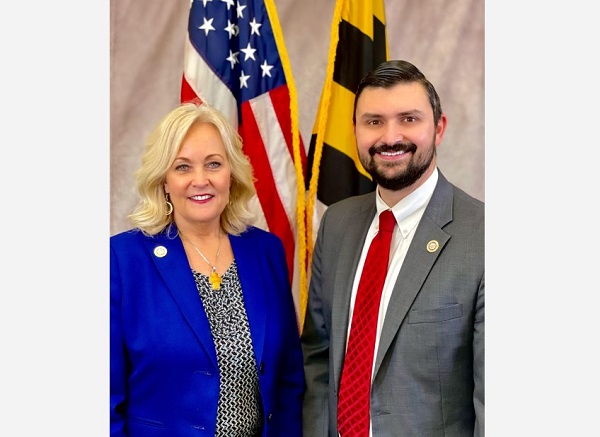The following is an op-ed piece from Delegates Kathy Szeliga and Ryan Nawrocki.
On Friday, March 24th, Baltimore City and County announced in a press conference that they were considering accepting at least 675,000 gallons of toxic water from the East Palestine, Ohio, railroad chemical disaster last month. The toxic waste was to ultimately be sent to the beleaguered Back River Wastewater Treatment Plant. Immediately, we spoke out against this proposal and began contacting various state and federal agencies and federal, state, and local officials to stop this from occurring. No amount of money or pressure could force us to accept and process the toxic cleanup waste from the chemical disaster in Ohio here in Maryland.
We announced plans to work with our colleagues in Annapolis to introduce emergency legislation prohibiting Maryland from becoming Ohio’s toxic waste dump. On Saturday, elected officials in the Baltimore region were briefed by entities including the EPA, MDE, Clean Harbors (the private company processing the toxic waste) about Friday’s announcement. Members of the US Senate, Congress, the Lt. Governor, representatives from the Governor’s office, members of the General Assembly, City, and County Councils all expressed grave concerns about this proposal.
We know our rights as lawmakers to control our local facilities and our oath to protect our communities and environment. Yet, the EPA tried to strongarm Baltimore City and County into accepting this shipment. This was a bipartisan issue, and we were proud to lead the charge against these imprudent decisions.
On Sunday, we were joined by Delegate Robin Grammer of District 6 as we called upon the Baltimore County Council to pass an emergency resolution expressing the Council’s disapproval of Back River Wastewater Treatment Plant being a facility treating Ohio’s toxic wastewater. In a letter to the Council, we urged them to pass this resolution to affirm the county’s position that Baltimore City and the Back River Plant are not the appropriate places to treat or discharge this wastewater.
Thankfully on Monday night, Baltimore City released a statement announcing its decision to deny Clean Harbors’ request to discharge wastewater from the cleanup of the Norfolk Southern Railroad derailment into the City’s wastewater system after processing at the Clean Harbors’ facility in Baltimore. The statement pointed out that Clean Harbors has facilities nationwide that may be better positioned to dispose of the treated wastewater. Clean Harbors was urged to explore those alternatives.
We thank Baltimore City for taking swift action and stopping the toxic waste from being discharged into our state. The health of the citizens of the Baltimore region and the Chesapeake Bay, should be the priority for all elected officials. After this announcement, Clean Harbors further announced that none of the wastewater from the Ohio disaster would be coming to Baltimore for processing, delivering another victory for those concerned about our communities and the bay!
The Baltimore County Council unanimously passed a resolution yesterday afternoon during an Emergency Legislative Session.
The resolution includes the following information:
- Expresses its support for Baltimore Mayor Brandon Scott’s decision to direct his Department of Public Works to modify the discharge permit for Clean Harbor to deny their request to discharge processed wastewater from the cleanup of the Norfolk Southern Railroad derailment into the City’s wastewater system;
- Requests that the U.S. Environmental Protection Agency deny any future authorization that would permit processing of wastewater under similar circumstances through the Back River Waste Water Treatment Plant; and
- Strongly urges Federal, State, City, and County officials to work collaboratively together to address and resolve the systemic issues at the City-owned Treatment Plants located in the County that provide clean water for the entire region.
The work isn’t over yet; we will still be working with our colleagues, including Senator Mary Washington and others, to examine the issue and possibly pass legislation for a long-term plan to avoid this type of issue in the future. The health of the citizens of Maryland and the Chesapeake Bay must be protected at all costs.


